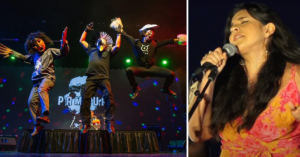Rat, Ox, Tiger, Rabbit, Dragon, Snake, Horse, Goat (Sheep), Monkey, Rooster, Dog and Pig…which are you? If you were born in the years 1938, 1950, 1962, 1974, 1986, 1998 or 2010, congrats Tiger—2022 happens to be your lucky year! The Chinese New Year, or the Lunar New Year (throughout Asia), is a cultural celebration based…



